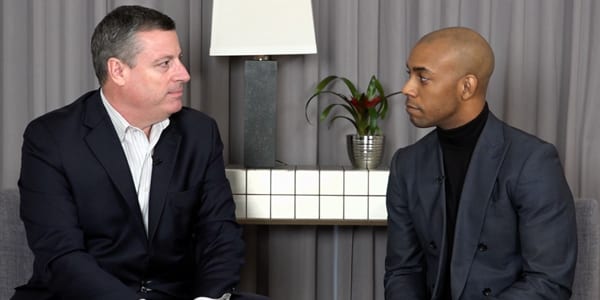“Allow your passion to become your purpose, and it will one day become your profession.” – Gabriel Bernstein
 Communicators are being asked to play an even more pivotal role in shaping the way organizations operate, and are collectively presented with the unique opportunity to encourage organizations to question long-standing beliefs, and embolden them to make a difference by focusing on purpose as well as profit.
Communicators are being asked to play an even more pivotal role in shaping the way organizations operate, and are collectively presented with the unique opportunity to encourage organizations to question long-standing beliefs, and embolden them to make a difference by focusing on purpose as well as profit.
In a world seemingly more divided by the day, our role to encourage positive social change couldn’t be more critical…
I recently had the opportunity to take the stage with renowned TED speaker, and Co-founder/CEO of MBAs Across America, Casey Gerald at the Holmes Global PR Summit to discuss his vision of “purpose as the new bottom line.”
I sat down with Casey after our presentation for a more intimate discussion where he provided his point of view on purpose, and what we can do to collectively inspire both communicators and brands to feel more empowered to focus not just on the bottom line, but on the broader needs of society.
Here are a few of the moments from our discussion:
- The evolving expectations (read: demands) of corporations.
“Business is to this age, what church was in the middle ages.” Casey points out that business is the most important institution in modern society, and it’s in desperate need of a reformation. His decree for bold action is much less a casual open invitation, and more a demand with lasting and direct implications. He goes on to cite General Patraeus by comparing military leaders’ use of completely outdated field manuals in the early phases of the Iraq War to business leaders operating in a way that does not match with the times.
- A social awakening.
We live in revolutionary times. Casey points out that, even when great strides are made, the only time tangible social transformation comes is at the heels of a social awakening, and that social awakenings cannot be devised in a laboratory or classroom… they are the product, in part, of great stories. Our role as brand storytellers will be an increasingly valuable tool as brands shift toward a purpose-driven narrative, and become active participants in the next social awakening.
- There is no substitute for courage.
I asked Casey how a CEO can simultaneously meet the demands of earnings/growth while setting aside the resources needed to give back to society in a substantive way. He noted that there is a genuine interest from many business leaders – but both a lag in how to do it, and the courage to take the risks necessary to enact that change stand in their way. In a divergent example, he cites Apple’s Tim Cook being criticized by a shareholder who “…didn’t give Tim his money to save the world.” Cook’s reply: If you don’t support how I‘m leading this company, I’m happy to give you your money back. It’s the folks that are willing to take that risk and make analogous bold declarations that will continue to pave the way for the larger group. Casey added that his generation, and those that follow, do not cohere with a relentless and blind focus on returns. “We may not necessarily know what works, but we know what doesn’t work.”
Casey’s message of inspiring brands to feel empowered to make a difference in social change is one that I’m sure resonates with many communicators. Below is the full video of our time together. I hope this post inspires you to take the first step to encourage more purpose-driven change within your organization.



